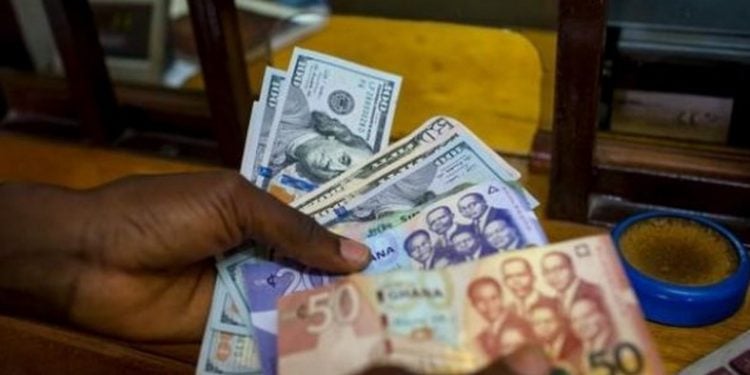The Ghana cedi has experienced a remarkable resurgence, appreciating significantly against major international currencies in the first half of 2025. This turnaround, as highlighted by Finance Minister Dr. Cassiel Ato Forson during the Mid-Year Budget Review, represents a near-complete reversal of the depreciation witnessed in preceding years. The cedi’s gains against the US dollar, British pound, and euro stand at 42.6%, 30.3%, and 25.6% respectively, a stark contrast to the double-digit declines recorded during the same period in 2024. This impressive recovery has been lauded as a significant economic achievement, offering a respite from years of currency instability.
While the government celebrates this positive trend, analysts at Cnergy Global Holdings offer a cautious perspective, questioning the long-term sustainability of the cedi’s strength. They acknowledge the Bank of Ghana’s robust foreign exchange interventions and the bolstering of national reserves as key drivers of the cedi’s rebound. However, they raise concerns about the currency’s ability to maintain its value if these supportive measures are withdrawn, particularly in light of the International Monetary Fund’s advice to reduce market interventions for greater flexibility. The central bank’s direct involvement in the foreign exchange market has been instrumental in stabilizing the cedi, but a shift towards a more market-driven approach could expose the currency to renewed volatility.
Cnergy identifies the growth in Ghana’s foreign reserves, now covering 4.6 months of imports, as another crucial factor contributing to the cedi’s stability. This increased reserve buffer, partly attributed to the establishment of the GOLDBOD, has instilled confidence in the market and provided a foundation for the currency’s positive performance. However, the report cautions against complacency, emphasizing the vulnerability of the cedi to external shocks such as potential global price hikes, geopolitical tensions, and trade disputes involving major economies like the United States. These external pressures could disrupt trade flows and exert downward pressure on the cedi, potentially undermining the recent gains.
Despite these risks, the report also highlights potential mitigating factors. The World Bank’s projection of a 12% decline in global commodity prices could offset some of the external pressures on the Ghanaian economy and its currency. This potential easing of commodity prices would offer a buffer against inflationary pressures and contribute to a more stable economic environment. However, the report emphasizes that the cedi’s sustained strength hinges not just on favorable global conditions but also on prudent domestic policy choices.
Cnergy underscores the importance of effective coordination between government programs. Fiscal discipline, targeted investments, and the successful implementation of flagship initiatives like the 24-Hour Economy, the Big Push Programme, and the Agriculture for Economic Transformation Programme are crucial for maintaining macroeconomic stability and supporting the cedi’s value. These initiatives, if effectively implemented, can contribute to economic growth, improve productivity, and enhance investor confidence, all of which are essential for a stable currency. Conversely, policy missteps or inconsistencies could undermine market confidence and exert renewed pressure on the cedi.
The cedi’s resurgence has provided much-needed relief to businesses and households after years of enduring the negative consequences of currency depreciation and volatility. Businesses have gained greater predictability in their import and export transactions, while households have seen some easing of inflationary pressures. However, sustaining these gains requires a multi-pronged approach that goes beyond short-term market interventions. Long-term fiscal discipline, sound economic management, strategic investments in key sectors, and the ability to adapt to a dynamic global economic landscape are essential for ensuring the cedi’s continued stability and contributing to sustainable economic growth. The current period of stability offers a valuable opportunity to implement the necessary reforms and build a more resilient economy that can withstand future challenges.














